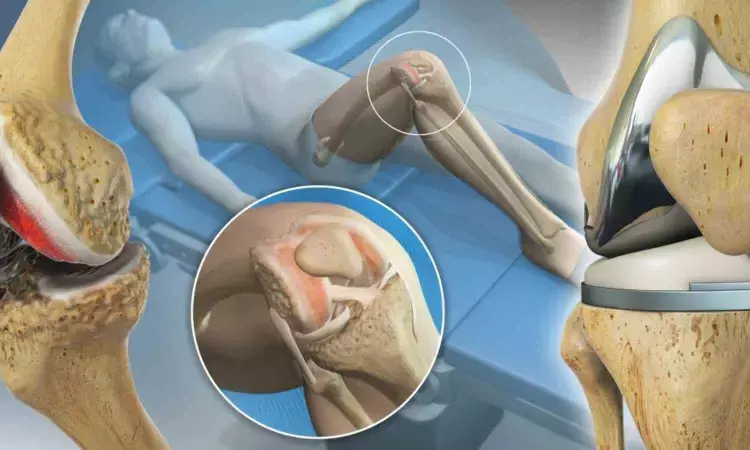- Home
- Medical news & Guidelines
- Anesthesiology
- Cardiology and CTVS
- Critical Care
- Dentistry
- Dermatology
- Diabetes and Endocrinology
- ENT
- Gastroenterology
- Medicine
- Nephrology
- Neurology
- Obstretics-Gynaecology
- Oncology
- Ophthalmology
- Orthopaedics
- Pediatrics-Neonatology
- Psychiatry
- Pulmonology
- Radiology
- Surgery
- Urology
- Laboratory Medicine
- Diet
- Nursing
- Paramedical
- Physiotherapy
- Health news
- Fact Check
- Bone Health Fact Check
- Brain Health Fact Check
- Cancer Related Fact Check
- Child Care Fact Check
- Dental and oral health fact check
- Diabetes and metabolic health fact check
- Diet and Nutrition Fact Check
- Eye and ENT Care Fact Check
- Fitness fact check
- Gut health fact check
- Heart health fact check
- Kidney health fact check
- Medical education fact check
- Men's health fact check
- Respiratory fact check
- Skin and hair care fact check
- Vaccine and Immunization fact check
- Women's health fact check
- AYUSH
- State News
- Andaman and Nicobar Islands
- Andhra Pradesh
- Arunachal Pradesh
- Assam
- Bihar
- Chandigarh
- Chattisgarh
- Dadra and Nagar Haveli
- Daman and Diu
- Delhi
- Goa
- Gujarat
- Haryana
- Himachal Pradesh
- Jammu & Kashmir
- Jharkhand
- Karnataka
- Kerala
- Ladakh
- Lakshadweep
- Madhya Pradesh
- Maharashtra
- Manipur
- Meghalaya
- Mizoram
- Nagaland
- Odisha
- Puducherry
- Punjab
- Rajasthan
- Sikkim
- Tamil Nadu
- Telangana
- Tripura
- Uttar Pradesh
- Uttrakhand
- West Bengal
- Medical Education
- Industry
Computer navigation-assisted TKR significantly improves alignment and reduces perioperative complications in obese patients: study

Obesity has also been recognized as the most important modifiable risk factor for osteoarthritis. Total knee replacement (TKR) in obese patients presents additional challenges with increased risk of component malpositioning and component loosening. Navigation in TKR results in accurate alignment, titrated soft tissue balancing, reduced blood loss, early rehabilitation, and reduced chances of embolism by not entering the intramedullary space. Whether it actually improves outcomes and reduces complications in obese was the research question of our study.
Mrinal Sharma et al conducted a prospective randomized comparative observational study. Obese patients between ages 50 and 75 years undergoing primary TKR for osteoarthritis were included in the study after an internal review board approval and after prior informed consent. A hundred knees in obese patients [Body mass index (BMI) > 30 kg/m2)] with varus deformation undergoing TKR were randomized into a navigated group (NG, n = 50) and a non-navigated group (NNG, n = 50).
Key findings of the study were:
• Patients were followed for a minimum of 2 years. The average follow-up was 4.6 years (2–6.5 years).
• Two of the patients (four knees) in NG were lost to follow-up and three of the patients (6 knees) had died in the NNG leaving us with a total of 46 knees in NG and 44 knees in NNG at final follow-up.
• The NG showed better outcomes in terms of alignment, component positioning, range of motion (ROM), deformity correction, blood loss, return to activity, and complications.
• The average time was 69.41 minutes for the NNG and 85.59 minutes for the NG, the difference being statistically significant; the mean duration of surgery being longer for the NG (p-value < 0.001).
The authors concluded – ‘Navigation-assisted TKR in obese significantly improves the overall mechanical alignment and significantly reduces the coronal plane outliers compared to conventional TKR. Navigation marginally improves functional outcomes and range of motion, decreases morbidity by reducing blood loss and time to normalcy and better alignment reduces revisions in the near future. Navigation-assisted TKR in obese has shown a reduction in perioperative complications and it also indirectly reduces mortality by reducing the incidence of fatal PE. However, further multicentric studies with larger sample sizes and longer duration of follow-up are advocated to see whether better alignment and function would translate into prosthesis survival in the long term.’
Further reading:
Navigation-assisted vs Non-navigation-assisted Total Knee Replacement in Obese Patients: A Comparative Randomized Study Mrinal Sharma et al Indian Journal of Arthroplasty (2024): 10.5005/ijoa-11025-0006
MBBS, Dip. Ortho, DNB ortho, MNAMS
Dr Supreeth D R (MBBS, Dip. Ortho, DNB ortho, MNAMS) is a practicing orthopedician with interest in medical research and publishing articles. He completed MBBS from mysore medical college, dip ortho from Trivandrum medical college and sec. DNB from Manipal Hospital, Bengaluru. He has expirence of 7years in the field of orthopedics. He has presented scientific papers & posters in various state, national and international conferences. His interest in writing articles lead the way to join medical dialogues. He can be contacted at editorial@medicaldialogues.in.


